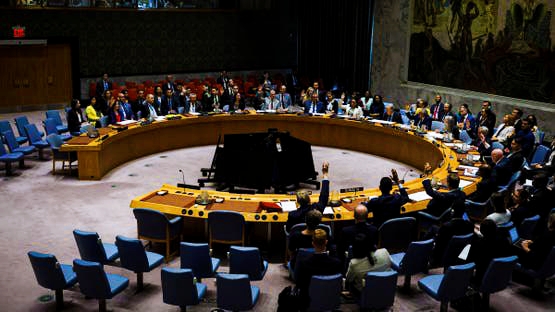Israeli Ambassador to the United Nations Danny Danon announced on Sunday that the UN Security Council will hold an emergency session next Tuesday to discuss the critical humanitarian situation of Israeli prisoners held in the Gaza Strip.
This announcement comes amid rising international and Israeli concern over the fate of these prisoners, following the release of poignant videos revealing the weakness and frailty of prisoners Rom Braslavski and Eviatar David.
Danon confirmed through a post on social media that the special session will deeply address the escalating humanitarian crisis in Gaza, which faces a real threat of famine according to warnings from the United Nations and relief experts.
The Hamas and Islamic Jihad movements indicated that the release of these videos was aimed at highlighting the difficult humanitarian conditions in the sector.
Amid the blockade imposed by Israel and its strict restrictions on the entry of aid, UN reports and relief agencies speak of the disappearance of most humanitarian aid, either due to looting by gangs or because of security chaos, depriving needy populations of access to food and medicine.
In an attempt to alleviate the suffering, Israeli Prime Minister Benjamin Netanyahu requested the International Committee of the Red Cross to provide the necessary assistance to supply food and medical treatment for the prisoners in Gaza.
For its part, the Al-Qassam Brigades confirmed its readiness to cooperate with the Red Cross to facilitate the entry of aid, provided that humanitarian corridors are opened to deliver food and medicine to the sector.
The brigades stated in a statement that Israeli prisoners are not deliberately starved, emphasizing that the prisoners eat the same food as its fighters and the residents of the sector, and no special privileges will be granted to them amid the blockade and hunger that everyone is suffering from.
The videos showing the sickly conditions of the two prisoners, with their emaciation and exhaustion, have sparked a wave of anger in Israeli streets, increasing pressure on the government to reach a swift agreement for the release of the prisoners and to end this suffering.

